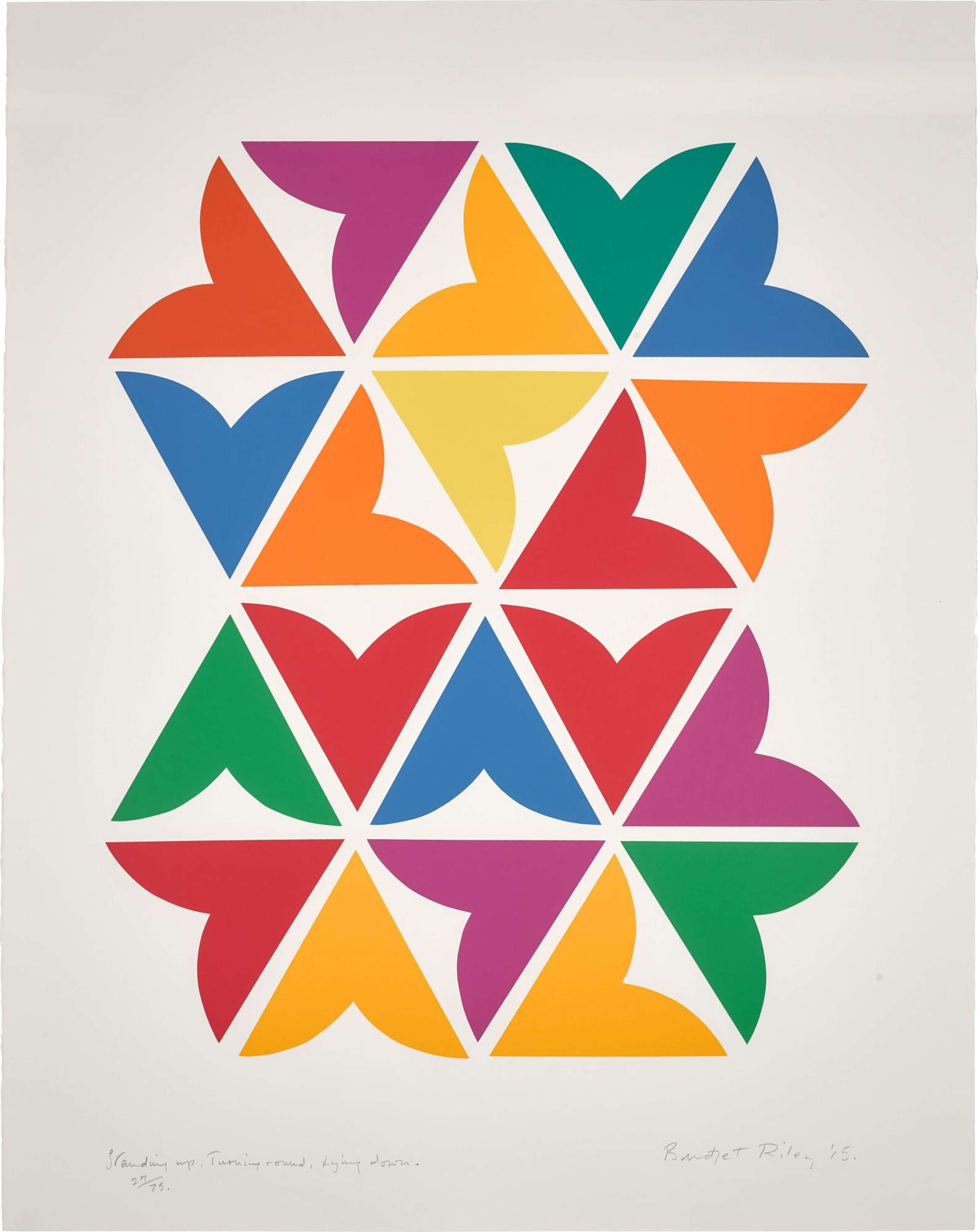
Standing Up, Turning Round, Lying Down
Standing Up, Turning Round, Lying Down
Signed Print
Bridget Riley
£6,500-£10,000
$13,000-$20,000 Value Indicator
$12,000-$18,000 Value Indicator
¥60,000-¥90,000 Value Indicator
€7,500-€11,500 Value Indicator
$70,000-$100,000 Value Indicator
¥1,350,000-¥2,080,000 Value Indicator
$8,500-$13,500 Value Indicator
There aren't enough data points on this work for a comprehensive result. Please speak to a specialist by making an enquiry.
71 x 59cm, Edition of 75, Screenprint
Auction Results

Track auction value trend
Meaning & Analysis
Standing Up, Turning Round, Lying Down is a signed screen print in colours produced by Op artist Bridget Riley in 2015. The print depicts a colourful pattern of shapes rendered in bold and vibrant block colours. The bright colours stand out against a plain white backdrop, drawing the viewer’s attention to the centre of the composition. Green, red, orange, yellow and blue dominate the composition, making this print lively and visually stimulating.
Made in 2015, this print was produced once Riley had gained the status of a highly influential, critically acclaimed artist. Riley rose to fame in the 1960s following an exhibition at the Museum of Modern Art in New York in 1965 which included some of her remarkable black and white paintings. Riley’s early work is characterised by her black and white palette and the way in which the artist experimented with light, shape and colour to evoke a sense of movement in her artworks.
While Riley’s early works tend to be in black and white, by the late 1960s the artist started experimenting with colour. Riley became fascinated with the way in which colour could influence perception as well as one’s emotional response to an image. Riley’s later works are marked by the use of bright colours and an experimentation with colour, tones and hues.
